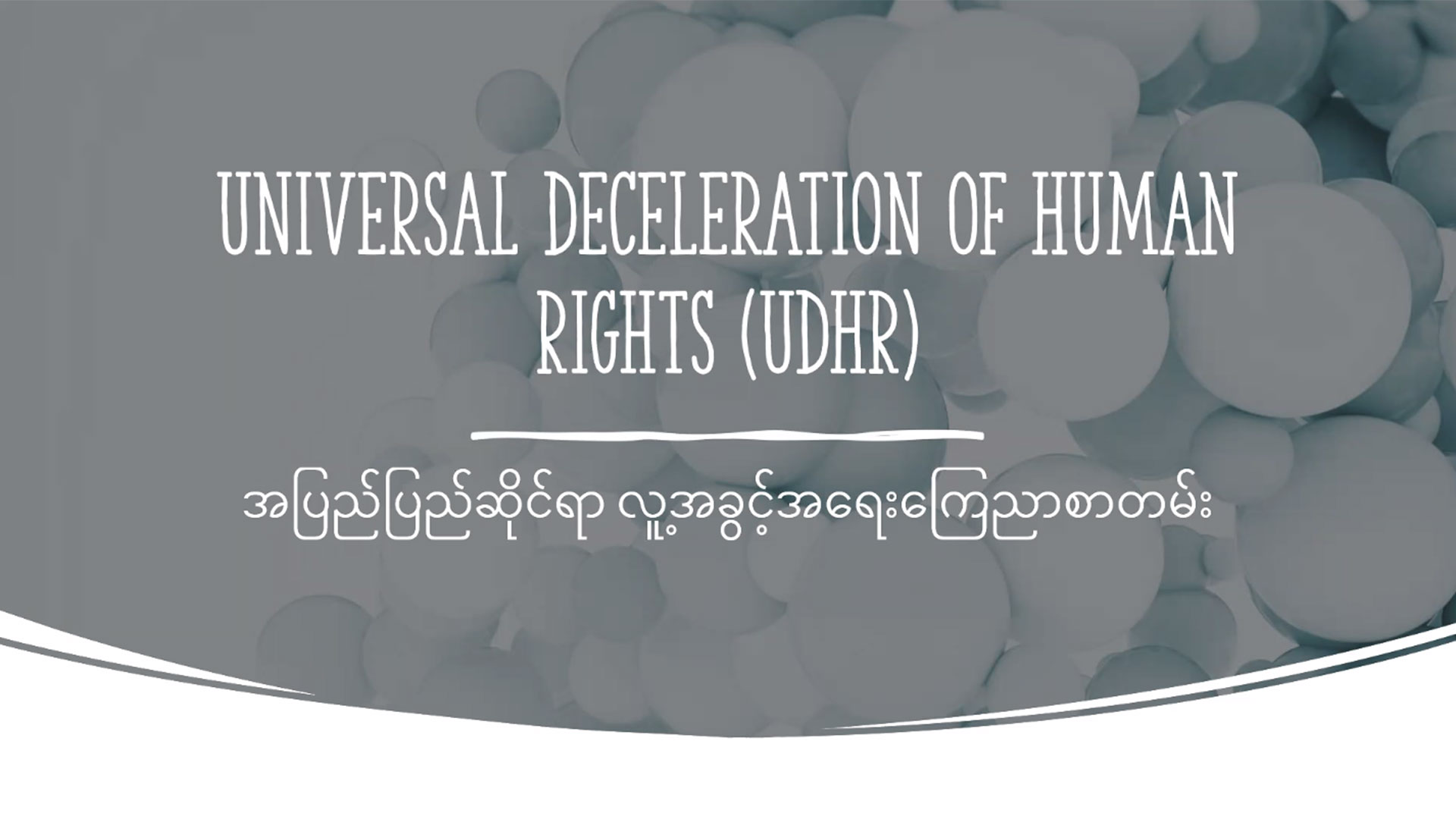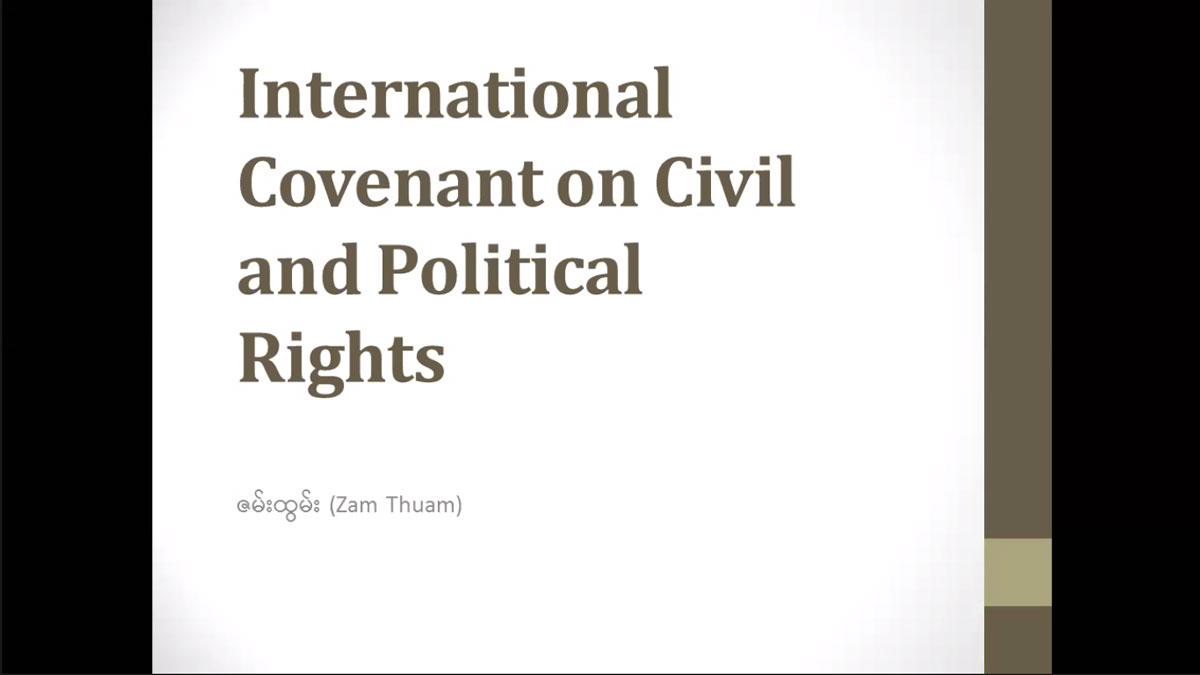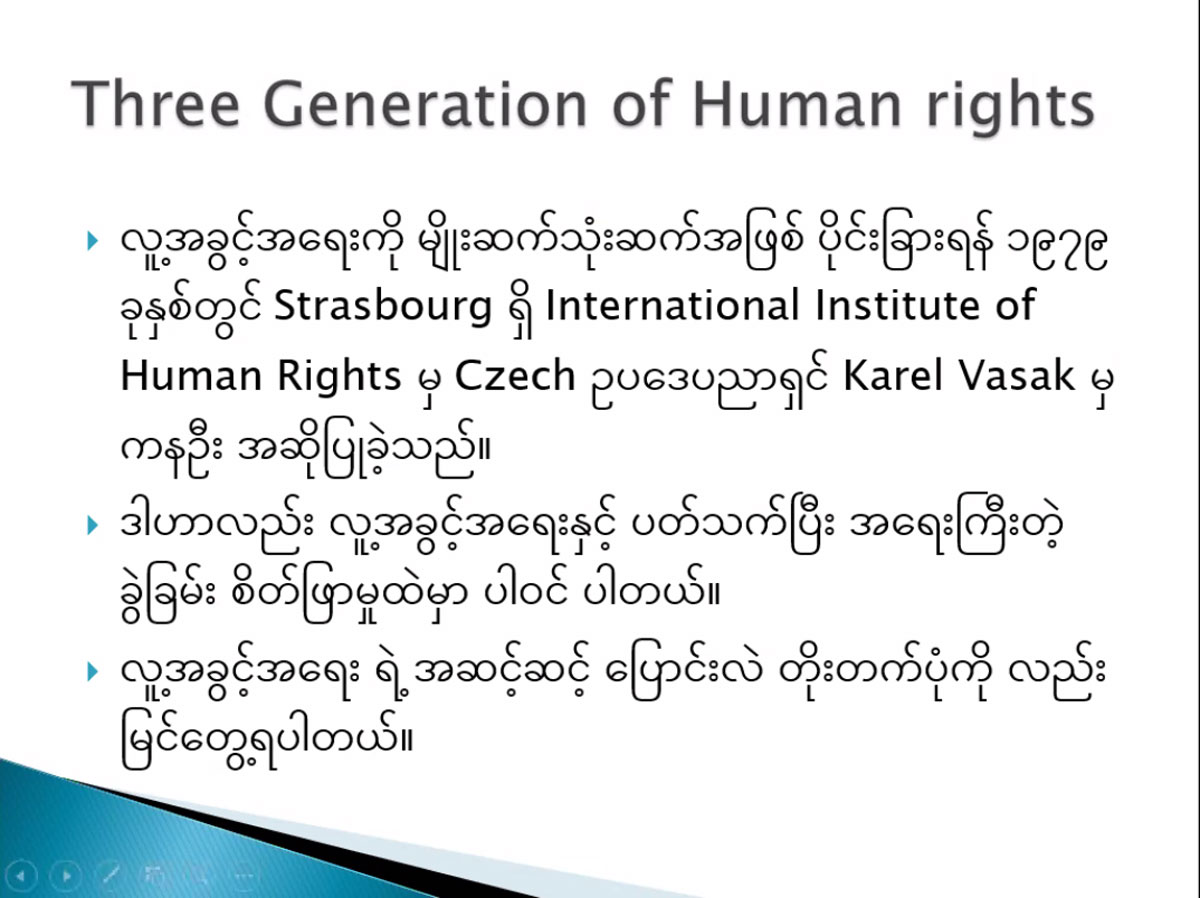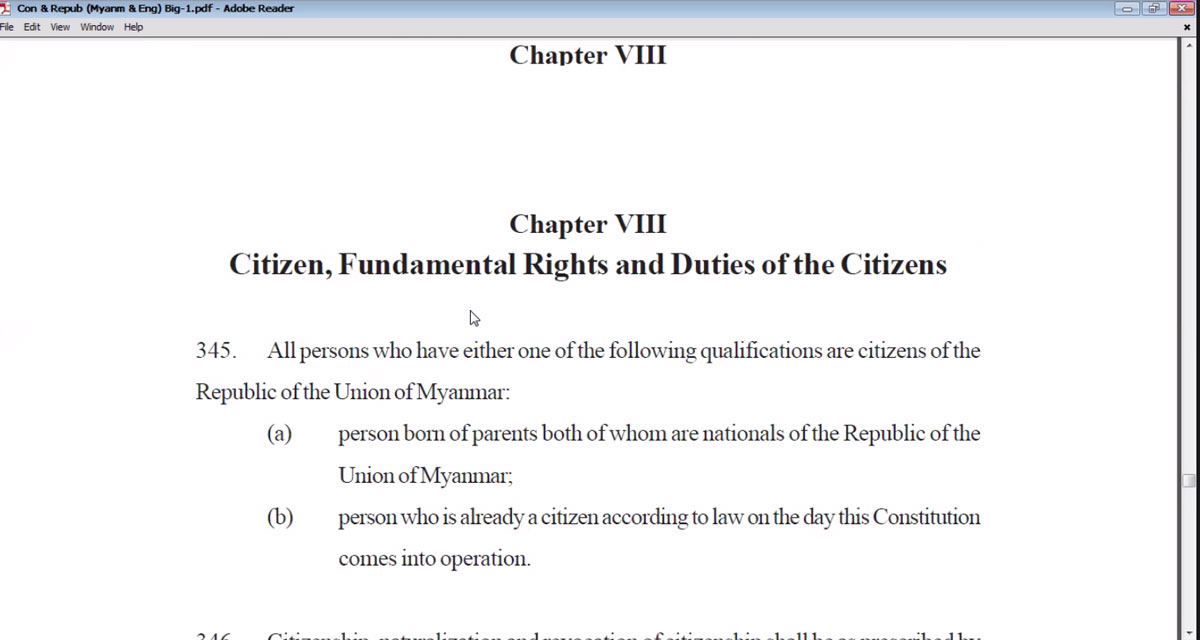Youth and Human Rights
Myanmar

Since its independence in 1948, Myanmar has mostly been under Military rule and has suffered from internal armed conflicts. The lack of political stability, rule of law and an impartial judiciary system has provided impunity for human rights violations committed by both state institutions and non-state actors. A lack of awareness of human rights norms and mechanisms has exacerbated the situation.
Many organizations tried to provide human rights education to the people in the past. They did so discreetly until democratically elected governments came to power between 2011 and 2020. During that period, FNF Myanmar started collaborative efforts with the National Human Rights Commission and local partners to organize Human Rights workshops.
When the military staged the coup in early 2021, almost all human rights organizations left the country. FNF Myanmar had to stop human rights projects due to security concerns. It led to an enormous gap in awareness raising and promotion of human rights among the people. In 2024, the Civic Development Institute (CDI) requested FNF to support basic human rights training for youth (18-35 years). Youth are a key to preventing further human rights violations. FNF and CDI organized two online trainings in June and July, despite the remaining risks.
The five half-day basic trainings covered human rights principles and key international frameworks, such as the Universal Declaration of Human Rights to provide basic knowledge and promote understanding of human rights. 65 youth participated in the training. For many of them, this was their first human rights training.
FNF Myanmar hopes that these trainings could be a first step in empowering youth to become active in promoting human rights in their communities.



Human rights education
